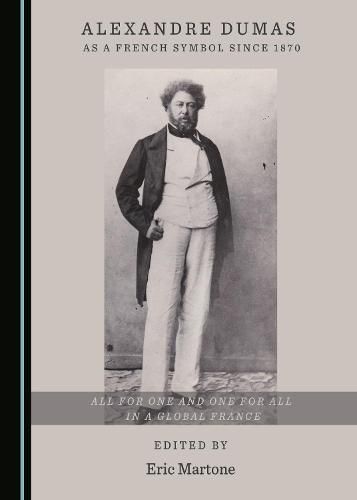Readings Newsletter
Become a Readings Member to make your shopping experience even easier.
Sign in or sign up for free!
You’re not far away from qualifying for FREE standard shipping within Australia
You’ve qualified for FREE standard shipping within Australia
The cart is loading…






Nineteenth-century writer Alexandre Dumas (1802-1870), author of The Three Musketeers and The Count of Monte Cristo, has been a controversial part of the French patrimony, and faced various forms of racial prejudice in France because of his biracial ancestry and due to being a descendant of a slave. During the late nineteenth century, the rise of scientific racism and aggressive European imperialism resulted in worldviews supporting European superiority and equated European with being white. Such developments complicated perceptions of Dumas as part of the French patrimony. French intellectuals and politicians from the late nineteenth-century onward created their own imaginative visions of what Dumas had represented in order to employ them ideologically to support or counter prevailing mainstream views of French history and identity. This collection traces the evolution of Dumas’s legacy as a controversial symbol of France since 1870, as the nation has struggled to deal with colonialism and its aftermath, and increased diversity and globalization.
$9.00 standard shipping within Australia
FREE standard shipping within Australia for orders over $100.00
Express & International shipping calculated at checkout
Nineteenth-century writer Alexandre Dumas (1802-1870), author of The Three Musketeers and The Count of Monte Cristo, has been a controversial part of the French patrimony, and faced various forms of racial prejudice in France because of his biracial ancestry and due to being a descendant of a slave. During the late nineteenth century, the rise of scientific racism and aggressive European imperialism resulted in worldviews supporting European superiority and equated European with being white. Such developments complicated perceptions of Dumas as part of the French patrimony. French intellectuals and politicians from the late nineteenth-century onward created their own imaginative visions of what Dumas had represented in order to employ them ideologically to support or counter prevailing mainstream views of French history and identity. This collection traces the evolution of Dumas’s legacy as a controversial symbol of France since 1870, as the nation has struggled to deal with colonialism and its aftermath, and increased diversity and globalization.